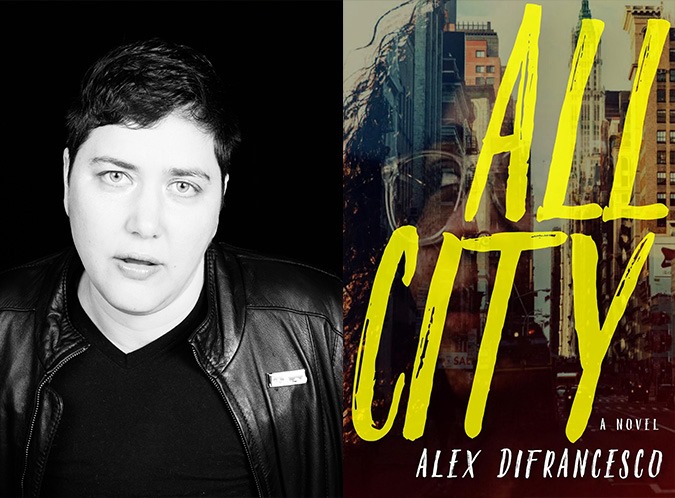
Ohioana is very happy, this Pride Month, to have had the privilege of interviewing one of our current Ohioana Book Award finalists, Alex DiFrancesco. Alex is a multi-genre writer who has published work in Tin House, The Washington Post, Pacific Standard, The New Ohio Review, Brevity, and more. In 2019, they published their essay collection Psychopomps (Civil Coping Mechanisms Press) and their novel All City (Seven Stories Press), which is a Fiction finalist for the Ohioana Book Awards. Their short story collection Transmutation (Seven Stories Press) is forthcoming in 2021. They are the recipient of grants and fellowships from PEN America and Sundress Academy of the Arts. They run the interview column “We Call Upon the Author to Explain“ at Flypaper Lit, and are an assistant editor at Sundress Publications.
Alex is the first trans and non-binary award finalist in Ohioana’s history. We asked them to answer some questions about All City, the writing process, and telling queer stories in 2020.
Ohioana: All City is about people and art and a lot of other things, but it’s also about systems that allow people like Evann to flourish and people like Jesse and Makayla to struggle. It feels so relevant, especially now. How did you approach the writing of those oppressive systems?
Alex DiFrancesco: There’s never been a time in my professional career when I didn’t write about the political. I believe, as a minority writer, that it’s just not possible to see the world without looking at these systems of injustice; I find it difficult to tell stories without them, even when I’m writing absurdism, or something “light.” We’re all entangled in the political as the personal every day, with every move we make. As a writer who writes character deeply, I don’t see how I could tell the stories of the people who I wish to tell stories of without doing this.
Ohioana: Your characters are, simply stated, so HUMAN. They feel like real people. How much of yourself do you put into characters like Jesse and Makayla, and even Evann?
AD: A whole lot. Makayla, though she’s demographically the person most unlike me who narrates All City, has more of me as an emotional core than any other character in the book. I think, especially when we’re writing those outside our purview, it’s important to have these true north feelings that coincide with us and our characters. Jesse, though they’re the most like me on the surface, and have many of my own memories from my time as an activist, is very different than I am, a lot harder than I am, a lot more a fighter and survivor. Evann, who’s nothing like me, still has a lot of my cultural touchstones, approached in a wildly different way than I would. For example, I also adore Jean-Micheal Basquiat’s art, though I’m not a person who will ever own a Basquiat.
Ohioana: Reading this story is actually both hopeful and frightening. How do you create a balance between the banding together of the survivors with some of the very realistic, traumatic experiences people like Makayla and Jesse endure? What do you think the disparate reactions of the characters to the shared experience of the storm says about human nature?
AD: I think that there’s a baseline in life that some people experience trauma, and say “I’ll never let this happen to anyone else,” and some experience it and think, “I made it through, so should everyone have to.” A lot of the characters in this novel take the former approach, using trauma to create survival and community. But it’s well within human nature to take the latter approach, too.
Ohioana: Can you tell us a little about what your daily writing process is like (if you have one)? Are you an outliner or a “fly-by-the-seat-of-your-pants”-er?
AD: I write every morning when I wake up, with coffee and cigarettes. I try to write, at minimum, 500 words a day. If I make it through that, I’m good. Often I go longer. I am very much an outliner. I actually use old-school grade-school brainstorming techniques — maps, thought webs, family trees, outlines, visual mapping of the story, character sketches — to get my feet under me. I often hang these things up in my office, returning to them as I write.
Ohioana: You reference music a lot in your books. Do you have any particular music you use to get into a writing mood?
AD: I quite obsessively listen to the Lounge Lizards experimental jazz album The Queen of All Ears when I write. I’ve been pretty overwhelmed by the despair in the world lately, and though I often listen to sad music, I’ve been trying to counteract it with hopeful music, and have had Nina Simone on rotation a lot lately. It’s hard for me to write to music with a lot of words, because I become too caught up in the lyrics. Jazz, classical, and experimental music are mainstays for writing for me.
Ohioana: So we definitely have to ask you an Ohio question! You’re an Ohio transplant. Was it a culture shock to come here after living in other, bigger places? Has that been a big adjustment? Have you found Ohio and especially Cleveland to be a good community for writers?
AD: I lived in Geneva, Ohio for a year before coming to Cleveland, and that was a huge culture shock. Cleveland is actually the city of my dreams. Its industrial blight reminds me of my hometown, a former coal mining town in Appalachia, but the community here is so vibrant, so different than where I’m from, that I fell very hard in love with this city immediately. As far as arts go, I have the most talented, diverse, committed, and brilliant group of writer friends here, The Barnhouse Collective and the Sad Kids Superhero Collective, who I’m so proud to work with and support, who support me right back. I’ve had a lot of opportunity here as a writer, and Cleveland’s got this great underdog vibe of, “We’ve heard the jokes, we know what you think of Cleveland, but we’re here doing amazing things, and will be doing so when you figure it out and catch up to them.” I adore it here.
Ohioana: You write across several genres including novel-length fiction, short stories, and essays. Is there a genre you enjoy the most? Do you find it difficult to switch between them, or to change from your writer to your editor “hat” when you’re writing for Flypaper Lit, Sundress, or any of the other publications you have worked for?
AD: I switch around a lot not only in the categories or writing, but in the subgenres in them a whole lot because I’m a very restless person who isn’t satisfied unless I’m pushing and challenging myself with something new. I think good writing is good editing, and they’re really two sides of the same coin when you get down to it, so that’s not a hard switch for me either.
Ohioana: You have also written Psychopomps, which is so deeply personal about your identity and your life. Do you feel it is getting easier to tell queer and trans stories? Do you have any advice for writers who might be struggling with their identity but afraid to fully tell those queer stories?
AD: I think the moment for trans narratives has definitely arrived. When I transitioned, there were very few presses willing to take on trans writing. That’s not the case now. My advice is, if one person thinks it’s good, there will be more out there who do, too, so do your research and don’t settle for less than the place that will support and champion your work relentlessly. I’ve been very lucky with my Seven Stories Press family in that regard — they’re a mid-sized press who’s published work by Octavia Butler, Kurt Vonnegut, Noam Chomsky — and they show me every bit of care and respect they show all their other authors. Every trans writer deserves that, and shouldn’t settle for less.
Ohioana: You are the first trans and non-binary Ohioana Book Award finalist (that we know of; we are not sure if there were folks in the past who may not have been out), and it is also Pride Month. Can you tell us what Pride means to you?
AD: Pride means being aware of history. Forefronting the struggles of BIPOC queer mama-papas and trancestors who have always been at the forefront of the struggle, who have always had the most to lose and fought the hardest. It’s not about parades and glitter and dance parties and wilding out. If Pride is just a time for you to celebrate and get laid and not to revere those who got us to where we are today, those who fought tooth and nail for every one of our rights, then you’re missing the point.
Ohioana: Can you tell us anything about your next writing project?
AD: I’d be delighted to. I’m working on a linked story collection that takes place in SoHo, Manhattan, in the year 2000. It revolves around a group of fine dining servers at a failing restaurant in the neighborhood David Bowie lived in then, who are dreaming of interacting with all of his stage personas in various genres. I like to think of it as Kitchen Confidential meets Cloud Atlas meets the career of David Bowie.
Thank you very much to Alex DiFrancesco for this wonderful interview. You can find them online at Flypaper Lit, Sundress Publications, and on Twitter @DiFantastico.
First given in 1942, the awards are the second-oldest state literary prizes in the nation and honor outstanding works by Ohio authors and illustrators in five categories: Fiction, Poetry, Juvenile Literature, Middle Grade/Young Adult Literature, and Nonfiction. This year’s winners will be announced in July, and the 2020 Ohioana Book Awards will be presented at the Ohio Statehouse in Columbus on Thursday, October 15. Follow our social media for more information, including our “30 Books, 30 Days” celebration of the finalists.
Check back tomorrow for book suggestions from more Ohio LGBTQ+ authors!
